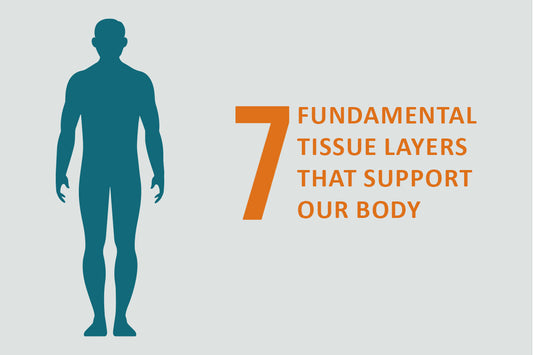As we approach 2025, health and nutrition trends are evolving quickly, driven by new research, changing habits, and a growing desire for personalized approaches to well-being. People are increasingly aware of how their food choices impact their overall health, and many are seeking ways to support their long-term wellness goals. In this blog post, we’ll explore the top ten key health and nutrition trends for 2025, covering the key areas shaping how we think about food and health.
- Gut Health Takes Center Stage
Gut health continues to be a focal point in 2025. More people are realizing the link between a balanced gut microbiome and overall wellness, including digestion, immunity, and even mental health. Fermented foods like yogurt, kimchi, and sauerkraut are gaining popularity for their positive effects on gut health. Prebiotics and probiotics will be added to a variety of foods and beverages, further supporting metabolic health and digestion. As awareness increases, gut health-focused products will be widely available.
- Personalized Nutrition Becomes Mainstream
Personalized nutrition is gaining traction as more people seek diets tailored to their unique needs. Advances in DNA testing and metabolic profiling allow individuals to craft nutrition plans that align with their body’s specific responses to food. Personalized nutrition will become an integral part of how people manage their health, with a focus on weight management, healthy aging, and metabolic health.
- Plant-Based Eating Continues to Rise
Plant-based diets are set to remain a top trend in 2025, driven by both health and environmental concerns. A plant-based diet is rich in fiber, antioxidants, and essential nutrients. Whether it's a vegan or flexitarian approach, more people are choosing plant-based foods for their health benefits. Expect to see more plant-based food and beverage options, including protein-rich meat substitutes, that support long-term wellness and help manage weight.
- Metabolic Health Gains Importance
Metabolic health is a key focus for 2025, with growing awareness of its impact on energy, weight management, and overall well-being. Foods that support healthy metabolism, such as low-glycemic options, will become increasingly popular. In addition, meals that provide a balance of healthy fats, fiber, and protein will help maintain a healthy metabolism, which is essential for overall wellness.
- Weight Management With Nutrient-Dense Foods
Rather than focusing solely on calorie restriction, weight management in 2025 will prioritize the quality of food. People will shift toward nutrient-dense foods that provide lasting satiety and energy, helping them maintain a healthy weight. Protein-rich, fiber-filled foods, and healthy fats will take center stage, offering sustainable solutions for weight management and long-term health.
- A Move Away From Processed Foods
As more people become aware of the negative effects of processed foods, there's a growing trend toward eating whole, minimally processed foods. Highly processed items, which are often filled with additives and unhealthy fats, are being replaced by nutrient-dense, whole foods. Clean eating will become more popular in 2025, helping people maintain metabolic health and support overall wellness.
- Healthy Aging Through Nutrition
With an aging population, healthy aging will be a priority in 2025. Nutrition plays a crucial role in supporting longevity and vitality for older adults. Nutrient-dense foods that provide essential vitamins and minerals, such as vitamin D and calcium, will help maintain bone health and cognitive function. Foods rich in antioxidants will also be vital for skin health and cellular regeneration, helping ease the effects of aging and promoting overall wellness.
- Rise of Functional Foods and Beverages
Functional foods and beverages, which offer benefits beyond basic nutrition, will see continued growth in 2025. These products are designed to support various aspects of health, such as digestion, immunity, and stress management. Examples include beverages with added adaptogens and foods enriched with probiotics or omega-3s. Functional food products will be increasingly popular as people seek convenient ways to support their long-term health goals.
- Sustainable Food Choices
Sustainability will continue to influence food choices in 2025. Many people are now prioritizing foods that are both good for their health and the planet. Plant-based foods, organic options, and locally sourced ingredients will become more common as consumers look for ways to make sustainable choices. This trend will not only benefit the environment but also help people maintain long-term health by reducing exposure to harmful chemicals and additives found in processed foods.
- Nutritional Education and Awareness
As people become more engaged with their health, nutritional education will continue to play a central role in shaping food choices. Clear, accessible information about food nutrition and health will empower consumers to make informed decisions. Nutrition experts, food companies, and policymakers will work together to provide the tools needed for people to develop healthier habits that contribute to long-term wellness.
Conclusion
As we enter 2025, health and nutrition trends are shifting toward more personalized, nutrient-dense approaches that support long-term health. From gut health and personalized nutrition to plant-based eating and sustainable food choices, these trends reflect a growing awareness of how food impacts our overall well-being. By focusing on whole, minimally processed foods, prioritizing metabolic health, and embracing sustainable practices, people can achieve their health goals and enjoy a better quality of life. These trends will shape the future of nutrition, allowing individuals to live healthier lives and age gracefully.






